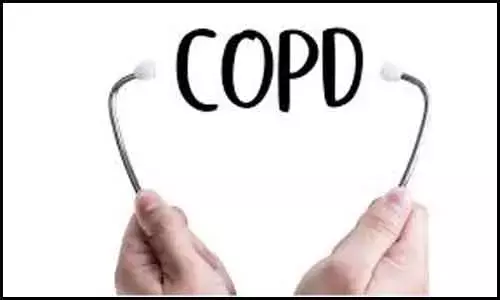- Home
- Medical news & Guidelines
- Anesthesiology
- Cardiology and CTVS
- Critical Care
- Dentistry
- Dermatology
- Diabetes and Endocrinology
- ENT
- Gastroenterology
- Medicine
- Nephrology
- Neurology
- Obstretics-Gynaecology
- Oncology
- Ophthalmology
- Orthopaedics
- Pediatrics-Neonatology
- Psychiatry
- Pulmonology
- Radiology
- Surgery
- Urology
- Laboratory Medicine
- Diet
- Nursing
- Paramedical
- Physiotherapy
- Health news
- Fact Check
- Bone Health Fact Check
- Brain Health Fact Check
- Cancer Related Fact Check
- Child Care Fact Check
- Dental and oral health fact check
- Diabetes and metabolic health fact check
- Diet and Nutrition Fact Check
- Eye and ENT Care Fact Check
- Fitness fact check
- Gut health fact check
- Heart health fact check
- Kidney health fact check
- Medical education fact check
- Men's health fact check
- Respiratory fact check
- Skin and hair care fact check
- Vaccine and Immunization fact check
- Women's health fact check
- AYUSH
- State News
- Andaman and Nicobar Islands
- Andhra Pradesh
- Arunachal Pradesh
- Assam
- Bihar
- Chandigarh
- Chattisgarh
- Dadra and Nagar Haveli
- Daman and Diu
- Delhi
- Goa
- Gujarat
- Haryana
- Himachal Pradesh
- Jammu & Kashmir
- Jharkhand
- Karnataka
- Kerala
- Ladakh
- Lakshadweep
- Madhya Pradesh
- Maharashtra
- Manipur
- Meghalaya
- Mizoram
- Nagaland
- Odisha
- Puducherry
- Punjab
- Rajasthan
- Sikkim
- Tamil Nadu
- Telangana
- Tripura
- Uttar Pradesh
- Uttrakhand
- West Bengal
- Medical Education
- Industry
Systemic antibiotics, corticosteroids effective in mild to moderate exacerbations of COPD

Chronic obstructive pulmonary disease (COPD) is characterized by frequent exacerbations.The researchers conducted a study to evaluate the comparative effectiveness and adverse events (AEs) of pharmacologic interventions for adults with exacerbation of COPD.
It was found that antibiotics and systemic corticosteroids reduce treatment failure in adults with mild to severe exacerbation of chronic obstructive pulmonary disease (COPD). The systematic review with meta-analysis is published in Annals of Internal Medicine.
COPD is characterized by frequent exacerbations that are often treated with antibiotics, systemic corticosteroids, and short-acting bronchodilators. Whether all patients, especially those with mild exacerbations treated as outpatients, benefit from these treatments is uncertain.
To compare the effectiveness of these treatments, researchers from the Mayo Clinic analyzed 68 randomized controlled trials that enrolled adults with COPD exacerbation treated in outpatient or inpatient settings other than intensive care. They compared drug therapies with placebo, "usual care," or other drug interventions. They found that compared with placebo or management without antibiotics, antibiotics given for 3 to 14 days were associated with improvement of exacerbation at the end of the intervention and less treatment failure at the end of the intervention, independent of severity of exacerbations in outpatients and inpatients. Compared with placebo in outpatients and inpatients, systemic corticosteroids given for nine to 56 days were associated with less treatment failure at the end of the intervention but also with a higher number of total and endocrine-related adverse events.
The limitations was scant evidence for many interventions; several studies had unclear or high risk of bias and inadequate reporting of AEs.
The researchers concluded that antibiotics and systemic corticosteroids reduce treatment failure in adults with mild to severe exacerbation of COPD.
Evidence for other interventions — such as aminophyllines, magnesium sulfate, anti-inflammatory agents, inhaled corticosteroids, and short-acting bronchodilators — was insufficient
For further reference log on to:
Dr Kamal Kant Kohli-MBBS, DTCD- a chest specialist with more than 30 years of practice and a flair for writing clinical articles, Dr Kamal Kant Kohli joined Medical Dialogues as a Chief Editor of Medical News. Besides writing articles, as an editor, he proofreads and verifies all the medical content published on Medical Dialogues including those coming from journals, studies,medical conferences,guidelines etc. Email: drkohli@medicaldialogues.in. Contact no. 011-43720751


